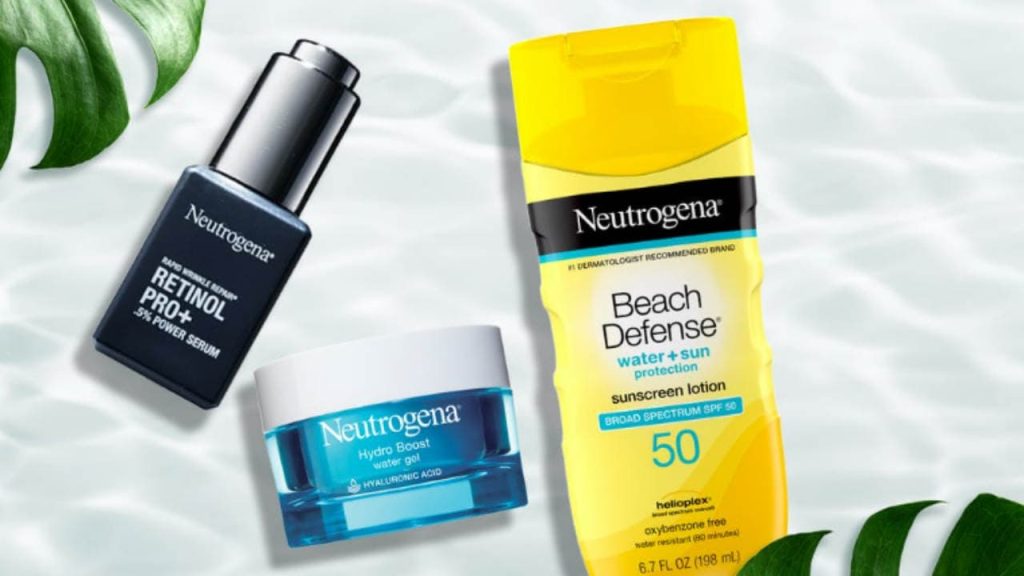When choosing a sunscreen, Neutrogena is one of the most talked-about brands. It’s widely available, recommended by dermatologists, and offers a wide range of products for different skin types. In this article, we’ll look at Neutrogena sunscreen pros and cons, helping you decide if it’s the right option for your skincare routine.
Pros of Neutrogena Sunscreen
Neutrogena sunscreens are popular for good reasons. Here are some of their top benefits:
1. Broad-Spectrum Protection
Neutrogena sunscreens protect against both UVA and UVB rays. These rays can cause skin aging, sunburn, and increase the risk of skin cancer. Most of their products have SPF 30 or higher, meeting dermatologists’ recommendations (American Academy of Dermatology).
2. Lightweight and Non-Greasy
Many Neutrogena sunscreens are made with a lightweight, fast-absorbing formula that doesn’t feel heavy or oily on the skin.
Click here to learn more about the benefits of lemon juice for your skin.
3. Good for Sensitive and Acne-Prone Skin
Products labeled “non-comedogenic” won’t clog pores. Many are oil-free and fragrance-free, making them a solid choice for people with acne or sensitive skin.
4. Variety of Options
Neutrogena offers lotions, sprays, sticks, and tinted sunscreens. Whether you need something for the face, body, kids, or sports use, there’s likely a Neutrogena sunscreen for it.
5. Added Skincare Benefits
Some formulas include ingredients like hyaluronic acid for hydration or antioxidants for extra skin protection.
Click here to learn more about the medical term for itchy skin.
Cons of Neutrogena Sunscreen
Despite the benefits, there are a few things users should be aware of:
1. Sprays May Be Less Effective
Spray sunscreens are easy to use but may not provide even coverage if not applied properly. You must rub them in to ensure full protection.
2. Possible White Cast
Some mineral-based formulas (especially with zinc oxide or titanium dioxide) may leave a white cast on deeper skin tones.
Click here to learn more about how to use olive oil on your face for oily skin.
3. Mid-Range Price
Neutrogena sunscreens are more expensive than generic or store brands. Some users may find the cost high for everyday use.
4. Irritation in Some Skin Types
Although labeled as gentle, a few people report irritation or breakouts, especially with chemical filters like oxybenzone.
Click here to learn more about tiny bumps on the skin – causes and treatments.
Summary: Neutrogena Sunscreen Pros and Cons
| Pros | Cons |
|---|---|
| Broad-spectrum UVA/UVB protection | Spray may apply unevenly |
| Lightweight, non-greasy formulas | Possible white cast (mineral sunscreens) |
| Suitable for sensitive skin | Higher cost than some brands |
| Multiple formats (lotion, spray) | Occasional irritation in sensitive users |
| Skincare ingredients included |
When to See a Dermatologist
You should see a dermatologist if:
- Sunscreen causes redness, breakouts, or rashes.
- You have a history of skin cancer or frequent sunburns.
- You’re unsure what type of sunscreen suits your skin.
- You need help choosing between mineral and chemical formulas.
Click here to learn more about itchy skin rashes – causes and treatments.
What to Expect During Your Visit
At the dermatologist’s office, you can expect:
- A skin assessment for type, sensitivity, and sun damage.
- Questions about your skincare products and sun exposure.
- Recommendations for sunscreens that fit your skin’s needs.
- Possibly a patch test to check for allergic reactions.
They may suggest certain Neutrogena products if you want something non-comedogenic or fragrance-free. If your skin is very sensitive, they might recommend mineral versions with zinc oxide.
Click here to learn more about how to keep your skin healthy and glowing.
A Word from GetMe Treated
Looking at Neutrogena sunscreen pros and cons, it’s clear that the brand offers reliable sun protection with plenty of user-friendly options. It performs well for many skin types, though individual reactions may vary. If you’re unsure which one fits your skin best, talk to a dermatologist for guidance.
FAQs About Neutrogena Sunscreen Pros and Cons
Is Neutrogena sunscreen good for everyday use?
Yes, many formulas are light enough for daily wear and designed for all skin types.
Can Neutrogena sunscreen clog pores?
Most versions are non-comedogenic, but reactions vary. Test a small area if you’re prone to breakouts.
Is Neutrogena sunscreen reef-safe?
Only some mineral formulas are reef-safe. Check the label for ingredients like zinc oxide or titanium dioxide.
Does Neutrogena sunscreen leave a white cast?
Some mineral versions can be especially effective on deeper skin tones. Tinted options may help reduce this.
How often should I reapply Neutrogena sunscreen?
Every 2 hours, or immediately after swimming or sweating.
Can I wear makeup over Neutrogena sunscreen?
Yes, just let it absorb fully first. Some formulas are made to wear well under makeup.

